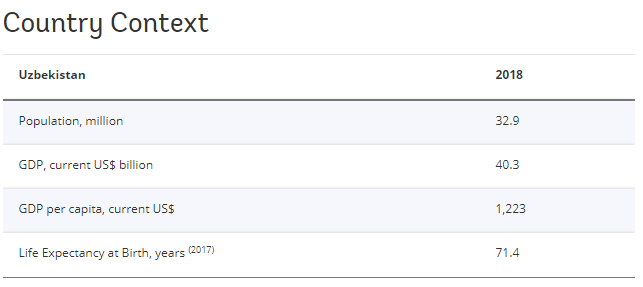The World Bank in Uzbekistan – Country Context

In 2017, with the drivers of the old growth model exhausted, Uzbekistan launched an ambitious program of market-oriented reforms that were unprecedented in the country’s modern history. The Government’s National Development Strategy for 2017–21 aims to transform the country by liberalizing the economy, reshaping the role of the state in the economy, modernizing the agriculture sector, strengthening governance, creating markets, including in financial services, enabling private sector growth, investing in human capital, and improving social protection and service delivery for all citizens. The Strategy, to be implemented over five years, is guided by an annual state program.
The country’s reform momentum has also created new opportunities for regional cooperation in Central Asia, including in energy, transport, water, and economic connectivity.
The Government has made rapid progress on implementing an impressive number of policy changes in a short period of time by initiating public service, judicial, educational, and tax systems reforms; liberalizing the foreign exchange regime followed by price liberalization measures; strengthening the independence of the Central Bank of Uzbekistan (CBU); simplifying the visa regime; improving the investment climate and business environment; initiating important reforms in the agricultural sector; scaling up anticorruption efforts; and opening a dialogue between the Government and the citizens of Uzbekistan.


